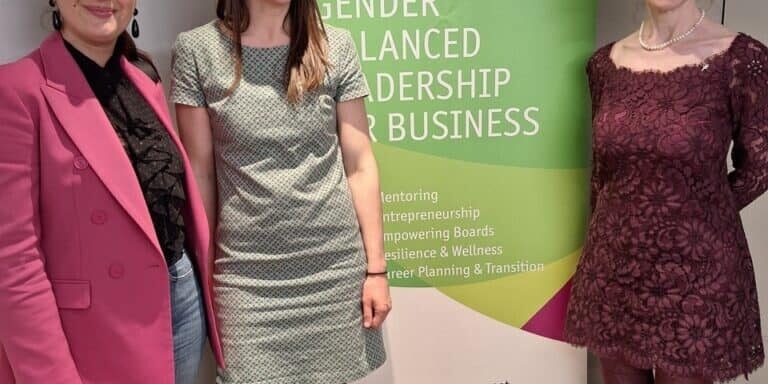Today, we have to be able to grasp complicated things very quickly. This requires “deep work,” which is how American scientist Cal Newport describes it.
“Deep work” is what we need in our digitalized times to be able to work in a concentrated and successful way. After all, technologies are developing at breakneck speed, and today we need to grasp and understand complicated processes quickly. This requires “deep work.” The term “deep work” was coined by Cal Newport. Concentrated work, i.e. deep work, has become a key qualification for all those who want to be successful in a global, highly competitive information society.
Achieving the state of “deep working” is not so easy. Many people find it difficult to find peace and concentrate. Distractions from many parallel communication channels, being constantly online, and often lively coworking spaces make it difficult for us to really focus on one thing at a time. But fortunately, there are simple methods for better concentration. The good news: “Deep Work” can be organized! Cal Newport even promises in his articles and his book “Concentrated Work” that we can reorganize our work life according to the rules of the Deep Work method and thus concentrate much better.
Important steps to “Deep work
For example, it is said to be helpful if we schedule some boredom into our daily routine. For this purpose, the Internet can be deliberately left out for hours at a time. Newport describes the process as giving the brain time to develop phases of concentration. He advises to leave social networks completely. If that is not possible, then at least reduce it so that you are only on one or two networks. How many minutes and hours might you save in a day by doing this? In 2012, Germans spent an average of 90 minutes a day on Facebook, etc., but six years later this figure has risen to 138 minutes, according to a study by Statista. (1) But why do we keep getting distracted by LinkedIn, Instagram and co? Newport provides us with explanations here as well: We are not aware that we are interrupting our work for something that is actually unimportant. Second, the principle of distraction is often the easy way out, he said. After all, he says, it requires much less planning if everyone is immediately responsive. Third, superficial work is more visible. Those who communicate constantly appear productive, and quality takes a back seat. Fourth, a large part of society believes that technology always means progress. Anyone who logs out of social media has to justify their actions. But is offline the new concentrated?
So is offline the new “deep work”?
No, of course it’s not like that! If you look at the basic conditions for “deep work”, they are often not optimal. The widely copied open mega-offices of Google or Facebook with pizza ovens and massage tables are considered hip and exemplary. Today, the small professor’s room looks stuffy and old-fashioned. But in the meantime, some companies have recognized how harmful constant accessibility can be and are once again creating opportunities for retreat. (2) An article in the Süddeutsche Zeitung describes the situation at Munich Re, for example, which has installed rest boxes in its new Munich office. Employees can work there without interruption. At LinkedIn Germany, everyone sits together in an open office, according to the article. Those who want to make phone calls can use soundproof glass cells, while those who need their peace and quiet can work in closed rooms. Employees at both companies say they use the retreat a lot. Coworking provider Satellite Office will soon open its first “silent workspace” in Frankfurt. Instead of large open spaces, there are plenty of protected, smaller breakout areas, most of which are even soundproofed to ensure a high level of discretion and productive work. State-of-the-art, air-conditioned cubes allow for “Silent Dialog”. For “deep working,” there are workstations in screened areas and small offices. Acoustics and a calm appearance play a central role, as they ensure well-being and a working environment that promotes concentration.
Tricks and exercises for concentrated work
But in addition to having a workspace that allows for quiet, being scheduled offline, and withdrawing from some social networks, there’s more that promotes productive work. Tricks to avoid distraction include wearing a wristwatch. If you use your smartphone as a watch, you automatically check Facebook and sooner or later lose yourself in the Internet. The alarm clock in the bedroom also has a positive effect, because smartphones next to the bed have been proven to disturb sleep. And only those who recover and have real rest periods can work with concentration. (3) Another trick that can be implemented particularly well in flexible workspaces like Satellite Office is to change the workplace. Anyone who is distracted while working should change places – for example, at home from the desk to the dining table or in the flexible workspace from the open-plan office or open space to the silent cube. Another “deep work” exercise is checking emails and completing phone calls and callbacks within predetermined time frames. This way, everything can be worked through within one or two hours and does not interrupt the concentration phases again and again in between. To do this, it is also best to turn off the push function for emails and calls on the cell phone. The clear division into work and recovery phases is also particularly important. For example, in 35 minutes of concentration and five minutes of coffee. After all, concentration requires a lot of willpower, and that exhausts itself like a muscle. Concentration is also a matter of training, with above tips you can incorporate the exercises daily.
Concentration becomes a daily workout
Even a few minutes of training per day and a well-planned daily schedule will significantly increase the periods of “deep work”. And thus significantly improve the productivity of the work. Here are our best tips (4):
– Keep your work time short. Time units that are scheduled for too long cause concentration to wane.
– Plan your workday or hours and tasks ahead. In doing so, try to schedule every minute. In compensation, free times for recreation are also firmly scheduled.
– Determine when to work in a concentrated manner, i.e. “deep work”, and when to complete tasks that require less concentration. Getting organizational and administrative issues done, for example, requires only “shallow work,” as Cal Newport describes this phase, which requires less concentration. This work can be interrupted rather once.
To conclude, let’s quote Cal Newport again: “If you don’t want to get lost in our fast-paced and volatile times, this concept is essential. In short, choosing deep work is one of the best things you can do in a world full of distractions.”
Video Tip:
Success in a distracted world: DEEP WORK by Cal Newport: https://www.youtube.com/watch?v=gTaJhjQHcf8
1) de.statista.com/statistics/data/study/475072/survey/daily-use-time-of-social-media/, 2) www.sueddeutsche.de/karriere/konzentration-im-buero-wer-staendig-e-mails-checkt-ist-nur-geschaeftig-echtes-arbeiten-geht-anders-1.3567696-3, 3) Source: Süddeutsche Zeitung, July 1, 2017, 4) Inspired by: coachingzonen-science.com/concentrate-work/










